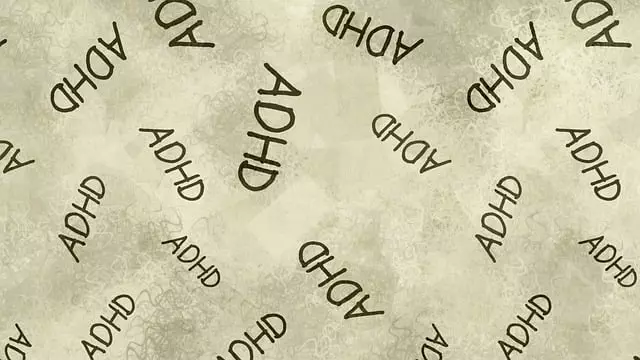The Kaiser Permanente mental health center Northglenn focuses on teaching practical emotion regulation techniques for improved mental well-being, combining emotional exploration with professional support. They promote self-awareness, healthy expression, and integration of self-care practices like exercise, mindfulness, and sleep. By enhancing self-esteem alongside emotion regulation, individuals gain resilience to navigate stressful situations healthily, using strategies ranging from simple practices like breathing exercises to complex planning for better mental health in a fast-paced world. Consistency and personalization are key to implementing these techniques, with support available through the Kaiser Permanente center's resources.
Emotion regulation techniques are powerful tools that can transform lives, and the Kaiser Permanente Mental Health Center Northglenn is at the forefront of teaching these skills. This article explores the significance of emotional intelligence and provides an in-depth look at various techniques used to manage emotions effectively. We delve into practical strategies that have shown remarkable results, backed by the expertise of professionals at the center. Learn how these techniques can enhance well-being and offer sustainable change for individuals seeking to navigate their emotions with greater ease.
- Understanding Emotion Regulation: Unlocking Emotional Intelligence at Kaiser Permanente Mental Health Center Northglenn
- Teaching Techniques: Practical Strategies for Effective Emotion Management
- The Benefits of Learning Emotion Regulation Skills
- Implementing and Sustaining Change: Tips for Incorporating These Techniques in Daily Life
Understanding Emotion Regulation: Unlocking Emotional Intelligence at Kaiser Permanente Mental Health Center Northglenn

At Kaiser Permanente Mental Health Center Northglenn, understanding emotion regulation is seen as a key component to unlocking emotional intelligence. This involves teaching individuals how to recognize, manage, and adapt to their emotions in healthy ways. Through evidence-based practices, the center offers various techniques that empower clients to navigate life’s challenges with greater resilience. By fostering strong social skills training and encouraging positive thinking, Kaiser Permanente equips its patients with essential tools for emotional well-being.
The center recognizes that effective emotion regulation is not just about suppressing feelings but rather about developing strategies to understand and respond to emotions constructively. This holistic approach, combined with the support of mental health professionals, helps individuals build a deeper connection with their emotions, leading to improved overall mental health and quality of life.
Teaching Techniques: Practical Strategies for Effective Emotion Management

Teaching effective emotion regulation techniques is a valuable skill that can empower individuals to manage their mental well-being. The Kaiser Permanente mental health center Northglenn offers practical strategies for navigating life’s challenges with resilience and emotional intelligence. One key approach involves helping clients understand their emotions, encouraging them to label and accept rather than suppress or deny them. This self-awareness fosters a deeper connection with one’s inner self, promoting healthy expression.
Additionally, the integration of self-care practices is essential in emotion regulation teaching. Encouraging regular exercise, mindfulness meditation, and adequate sleep can significantly boost individuals’ ability to cope with stress and emotional turmoil. Moreover, cultural sensitivity in mental healthcare practice is vital, ensuring that diverse populations receive tailored support that respects their unique backgrounds and values. Self-esteem improvement often goes hand in hand with effective emotion regulation, as building confidence enhances one’s capacity to handle difficult emotions constructively.
The Benefits of Learning Emotion Regulation Skills

Learning emotion regulation skills is a valuable asset that can significantly enhance one’s overall well-being and quality of life. The Kaiser Permanente mental health center Northglenn, among others, recognizes the profound impact these techniques have in empowering individuals to navigate their emotional landscapes effectively. By mastering these skills, folks can foster better mental resilience, enabling them to cope with stressful situations and challenging emotions in a healthier manner.
This process is akin to an emotional healing journey, where individuals learn to recognize and understand their feelings, thereby breaking free from the cycle of overwhelming emotions. It’s not just about managing anxiety relief; it involves cultivating a deeper awareness of one’s thoughts and behaviors, leading to improved risk management planning for mental health professionals and, ultimately, a more fulfilling life. This is particularly crucial in today’s fast-paced world where stress and emotional turmoil can often feel all-encompassing.
Implementing and Sustaining Change: Tips for Incorporating These Techniques in Daily Life

Implementing and sustaining change is a key aspect of successfully incorporating emotion regulation techniques into your daily life, especially when guided by professionals like those at the Kaiser Permanente mental health center Northglenn. Here are some practical tips to help integrate these strategies seamlessly:
1. Start Small and Build Gradually: Begin with simple, manageable techniques that can be easily incorporated into your routine. For instance, practicing mindfulness during morning rituals or using deep breathing exercises when feeling stressed. As you become more comfortable, gradually introduce more complex strategies such as cognitive reframing or communication skills.
2. Consistency is Key: Make a conscious effort to practice these techniques consistently. Set aside dedicated time each day for activities like meditation, journaling, or engaging in physical exercise, which are all effective mood management tools. Consistency helps to create a new habit, making it easier to rely on these strategies when facing emotional challenges.
3. Personalize Your Approach: What works for one person may not work for another. Tailor your techniques to suit your individual needs and preferences. For example, some people find solace in creative outlets like art or music, while others prefer structured activities like yoga or walking.
4. Seek Support: Don’t hesitate to reach out for help when needed. The Kaiser Permanente mental health center Northglenn offers resources and support systems that can aid in maintaining momentum. Regular check-ins with therapists or counselors can provide accountability and offer valuable insights into your progress, ensuring you stay on track and make any necessary adjustments.
5. Incorporate Communication Strategies: Effective communication is a vital tool for emotion regulation. The Mental Health Policy Analysis and Advocacy group emphasizes the importance of open dialogue in managing mental health. Practice active listening, assertiveness, and expressing your feelings in a healthy manner to foster positive relationships and reduce emotional conflicts.
Emotion regulation techniques, as demonstrated and taught at Kaiser Permanente Mental Health Center Northglenn, offer a transformative path towards enhanced emotional intelligence. By understanding our emotions and learning practical strategies, we can navigate life’s challenges with greater resilience. The benefits extend far beyond improved mental well-being; these skills foster better relationships, boost productivity, and promote overall personal growth. With consistent practice, individuals can sustain positive changes, ensuring a more balanced and fulfilling life.






